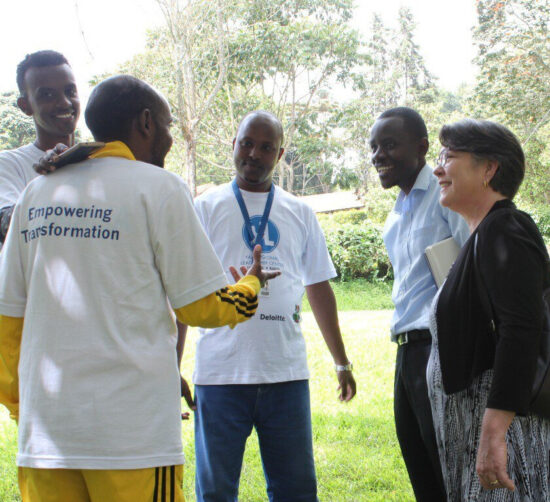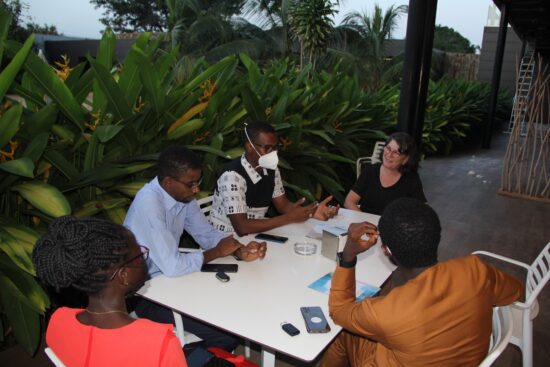By Ida Heckenbach, U.S. Foreign Service Officer and Global Ties U.S. Diplomat in Residence
Do exchanges matter? You bet! Looking back, I am convinced that I became a diplomat in large part because early exchange opportunities broadened my perspective and whetted my appetite for language learning and travel abroad.
As a rising high school senior, I participated in a Louisiana/France exchange program through the Council for the Development of French in Louisiana (CODOFIL). I was 16 and worked as a summer au pair for a family in France; it was my first overseas experience. I would go on to intern with CODOFIL and spend a year abroad in France as a university student, again through CODOFIL. Then, when I graduated with my B.A., I worked as an English Language Teaching Assistant in a French high school. The impact of those experiences was phenomenal. With each exchange, I was able to deepen my knowledge of both the French language and the culture, leading to other opportunities.
Because of these experiences, I was hired to manage a teacher exchange program for the State of Louisiana as the administrator of a J-1 program authorized by the former United States Information Agency. The program brought French teachers to Louisiana to teach in public middle schools. This in turn led me to teach high school French, and then to teach French at several Louisiana universities after I had earned my Ph.D. in French and Francophone Studies.
But ever since high school I had thought about joining the Foreign Service. My language abilities, travel experience, and other job skills seemed to be the right fit for the U.S. Department of State and in 1999 I became a diplomat. For the last 24 years, I have worked extensively with U.S. Department of State exchange programs, administering the International Visitor Leadership Program (IVLP) as well as the full range of programs administered by the Bureau of Educational and Cultural Affairs (ECA) in multiple posts (Algeria, France, Guatemala, Japan, and Senegal). As a Public Diplomacy officer, I connected to exchange participants as I understood, from my own life’s journey, that each one of them would find participating in such a program to be life changing.

Ida meeting Somalian Young African Leaders Initiative (YALI) participants while serving as the Acting Public Affairs Officer in 2017. Photo by the U.S. Embassy Mogadishu.
The Public Diplomacy Section (PDS) in each embassy manages the selection process for the IVLP, as well as all our other ECA exchange programs. The IVLP has a unique process which requires that nominators know the potential participants. Calls for nominations are sent to all posts overseas and PDS amplifies the call to all sections and agencies at post. Nominations are reviewed first by the PDS, then by a Selection Committee at post, and then by ECA for final vetting. PDS then works with each selected IVLP to prepare them for the exchange experience, assisting participants with scheduling a visa interview and arranging for the transportation to and from the United States. A pre-departure orientation walks them through the program book and PDS staff explain elements to prepare them for their upcoming program. A couple of months after the program, PDS staff reconnect to the IVLP traveler, invite the nominating office, and arrange for a de-brief.
Over the years, I have worked with hundreds of exchange participants as well as many more alumni of the IVLP and other ECA programs. With so many pre-departure orientations and program debriefs behind me, it is hard to single out one specific program – but the IVLP does stand out for several reasons. What I heard, again and again over the years, were the highlights of participants’ experiences. Almost every single one raved about the home hospitality, where they felt that had the chance to really connect with U.S. citizens by sharing a meal in their homes. The meetings and networking opportunities were rated as highly successful, the logistics as flawless (within the parameters of what folks can control – not the weather!). But most of all was the astonishment of our international participants that so much of this community-based programming was staffed largely by volunteers. Many participants come from countries where civil society is disempowered, and/or NGOs are not necessarily encouraged by government regulations. The Global Ties Network demonstrates how volunteerism and civic engagement can create change at the grass roots level and serves as a model for many of our alumni associations.

Ida having dinner with exchange alumni in 2021. Photo from the U.S. Mission to Guinea-Bissau.
The IVLP program is one of the most powerful public diplomacy tools we have at our disposal in our missions overseas. Participants come from a wide variety of backgrounds and often have long-term impact in their home countries when they return from their program. Because they are selected for their leadership potential, IVLP alumni move into positions of responsibility and authority. They are often active in alumni associations and remain in contact with our embassies.
As a result, I have also worked with a wide variety of alumni associations, including establishing new chapters, from program specific organizations like Fulbright to associations that gather together all of the alumni of U.S. government programs under one umbrella. Working with alumni is an amazing opportunity to leverage their U.S. experience and help us reach so many more audiences in our programming environments overseas. Alumni often have networks to tap into, professional experience to share, and are by far our best engagement allies.
During the coming year, I will learn the other side of the IVLP equation and get to know better our Network partners who are so critical to the program while working with Global Ties U.S. I look forward to taking this year’s detail experience with me back to the U.S. Department of State to better inform the work we do in collaboration with the member organizations of the Global Ties Network, including the DC-based National Program Agencies, and the local Community-Based Members spread across the United States, thus strengthening U.S. government exchanges.
In closing, for those who are interested in a career with the U.S. Department of State, there is no single path. Folks join the Foreign Service both right out of college, as a mid-career change, or through one of the Department’s internship programs and fellowships, to become generalists, specialists, and civil servants. If you or someone you know is interested in diplomacy, be sure to look at our website.
